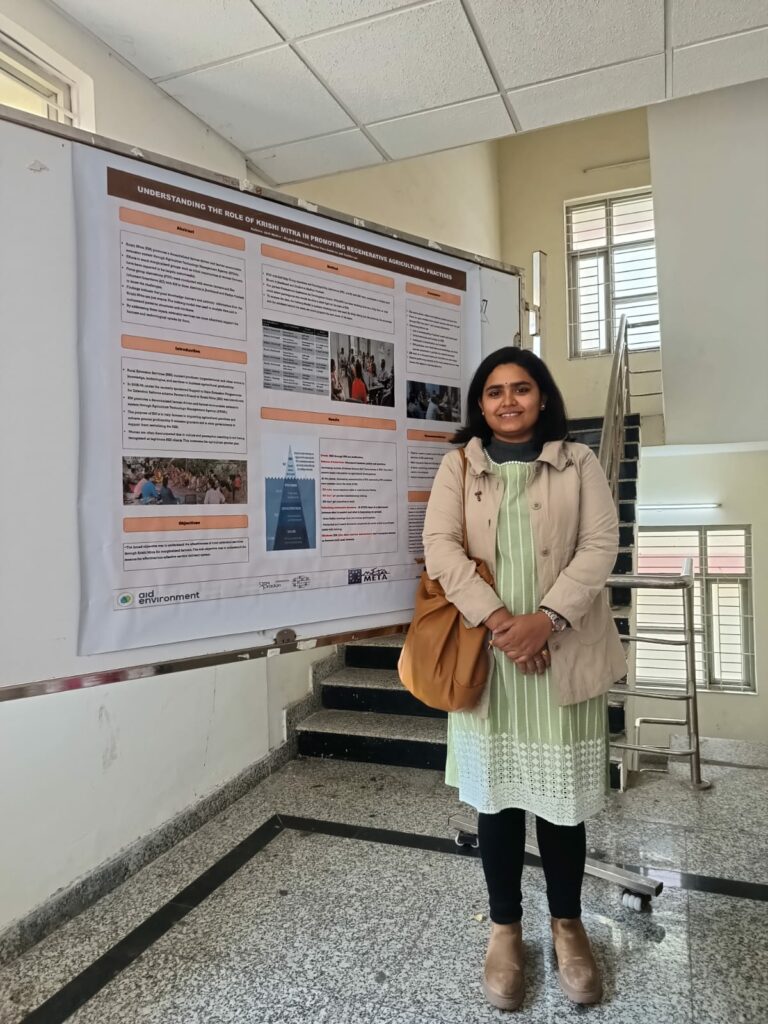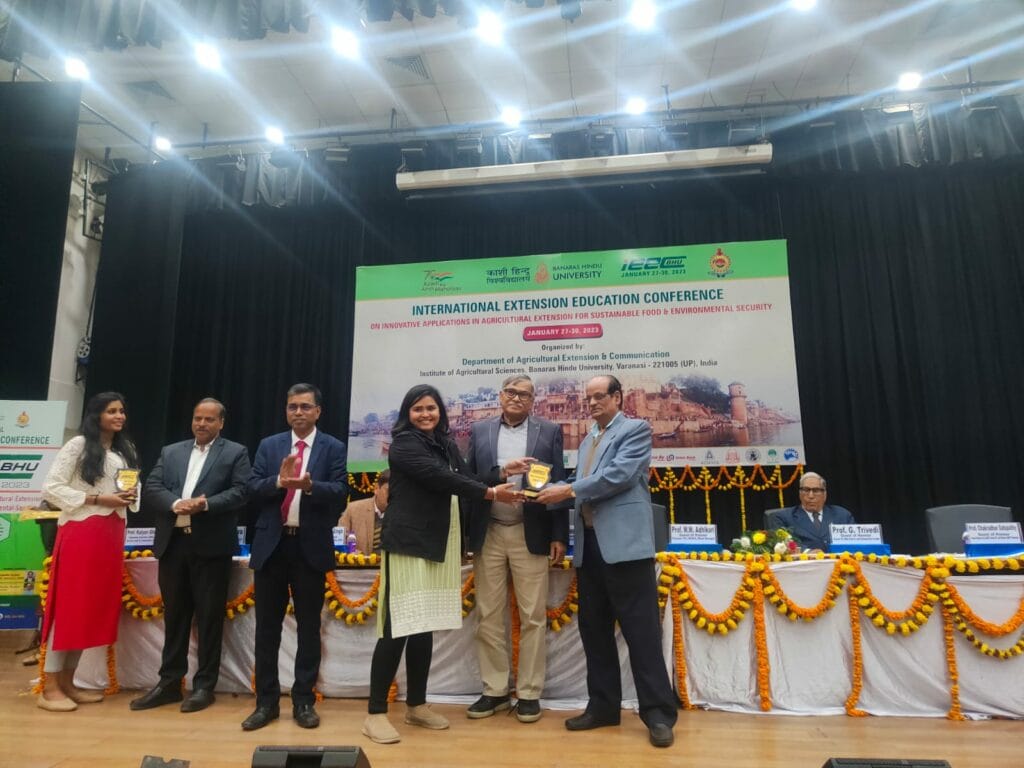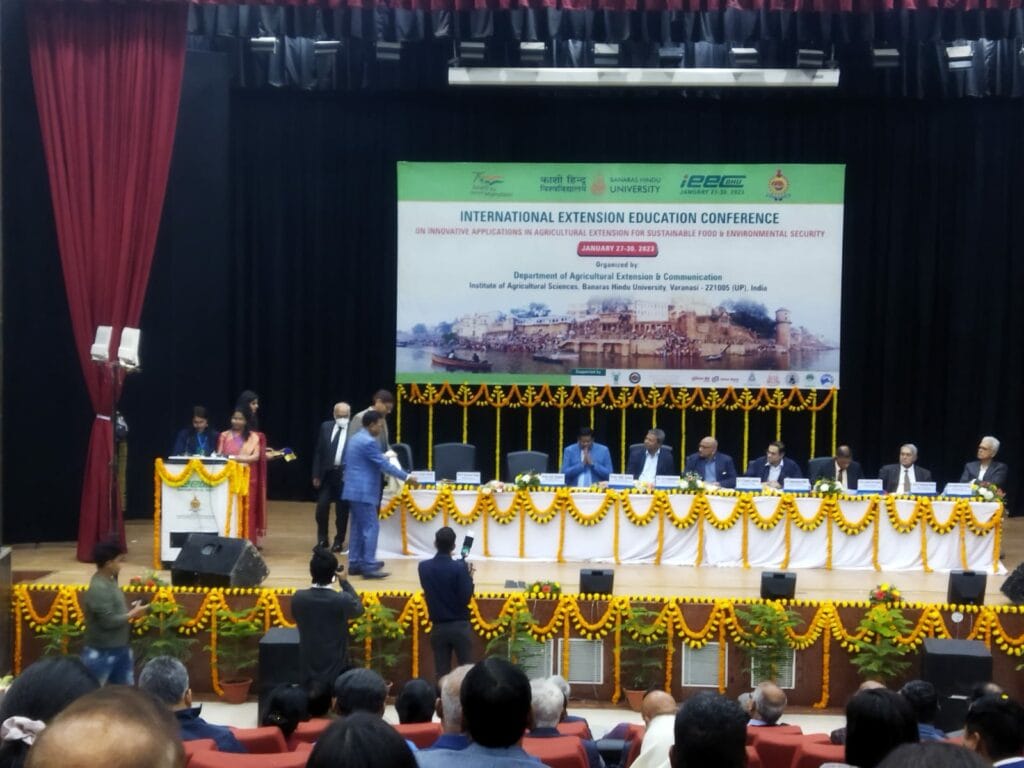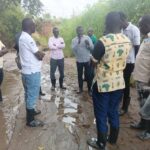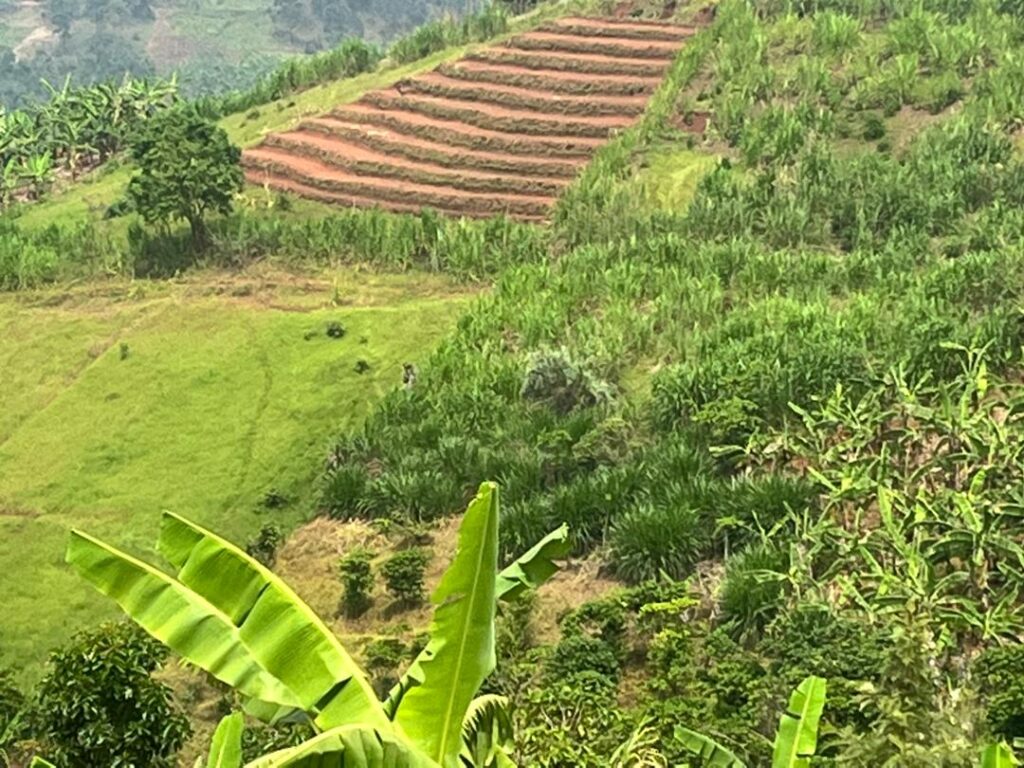AidEnvironment goes to International Extension Education Conference in India
“Innovative Applications in Agricultural Extension for Sustainable Food & Environmental Security” was the theme of the 2023 International Extension Education Conference organised by the Department of Extension Education, at the Institute of Agricultural Sciences of Banaras Hindu University, in Varanasi, India. The conference brought together experts from around the world to discuss and explore the latest developments and advancements in the field of agricultural extension.
Agricultural extension, also known as extension education, is a system of delivering information and support to farmers to help improve agricultural practices and increase productivity. The goal of agricultural extension is to transfer knowledge and technology from research institutions and universities to farmers in the field, allowing them to make informed decisions about their farming operations. Agricultural extension services typically offer a range of services, including training, information dissemination, and technical assistance.
The focus of the conference was on innovative approaches to improve food security, environmental sustainability, and the livelihoods of farmers. Delegates from a wide range of organizations, including government agencies, non-governmental organizations, and academic institutions, shared their experiences and insights on the challenges and opportunities facing the agricultural extension sector. The conference was attended by a number of distinguished speakers and experts in the field of agriculture and extension education, including Prof. Rick D. Rudd of Virginia Tech, USA, Dr. Jack Elliott of Norman Borlaug Institute for International Agriculture, USA, and Dr. Mohammad Nasir Uddin of Bangladesh Agricultural University, among others.
The conference also featured a range of parallel sessions, where attendees could delve into specific topics in more depth. The topics covered a range of issues related to the development and delivery of extension services to farmers. The themes discussed innovative approaches to extension management, communication and diffusion, as well as the provision of extension services, including capacity building and training, technology development, entrepreneurship, and market-led extension. The session also touched upon important issues such as gender, youth, and climate-smart agriculture, and discussed future perspectives of agricultural extension, including policies and reforms, local food production, sustainable development goals, and grassroot innovations.
One of the attendees was Jyoti Mishra, Junior Expert at AidEnvironment, she presented a poster on the “Role of Krishi Mitra in Promoting Regenerative Agriculture.” The poster was part of the theme “Innovations in Extension Communication and Diffusion” and the sub-theme “System Paradigm and Sustainable Models of Communication. The poster was based on the ongoing study under the Green Transformation Pathway Project to understand the important role that Agricultural extension services play in disseminating agricultural knowledge and information to farmers in India. The study gives a qualitative evaluation of the effectiveness of the Krishi Mitra. The study used the iceberg model to analyse the data and understand the reasons behind the poor delivery of information.
Krishi Mitra literally means Agriculture Friend. These are individuals who are trained in various aspects of agriculture and are equipped with the knowledge and resources needed to assist farmers in increasing their agricultural productivity and profitability. They provide advice and guidance on topics such as soil and water management, crop selection and rotation, pest control, and marketing of agricultural products. The aim of the Krishi Mitra is to help farmers become more self-sufficient and improve their standard of living through improved agricultural practices.
The study was conducted in three districts in Jharkhand and Madhya Pradesh, focusing on the work of Krishi Mitras and the challenges they face in delivering information to farmers. The findings of the study indicate that there is a disconnect between policy and practice in the extension services. And the poor delivery of information from the Krishi Mitra is a result of deeper patterns, structures, and mindsets.
The research presented at the International Extension Education Conference 2023 highlights the need for more effective agricultural extension services in India, particularly for marginalized groups like women farmers. Addressing the challenges faced by Krishi Mitras and improving their capacity to deliver effective services can help bridge the gap between policy and practice, ensuring that farmers have access to the knowledge and resources they need to thrive.
The 2023 International Extension Education Conference was a valuable and thought-provoking event for everyone involved in the agricultural extension sector. The discussions and presentations provided new perspectives, highlighted successes and gave direction for future work. It was a great opportunity to network, learn and collaborate with other professionals and organizations.

